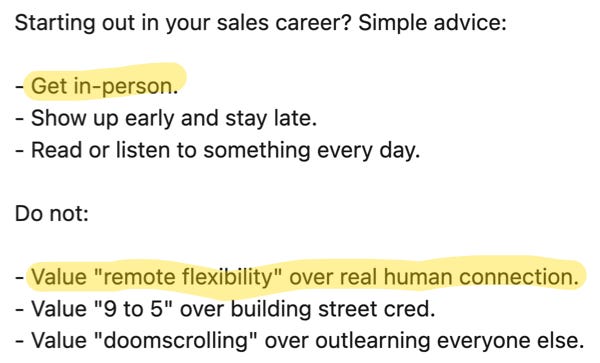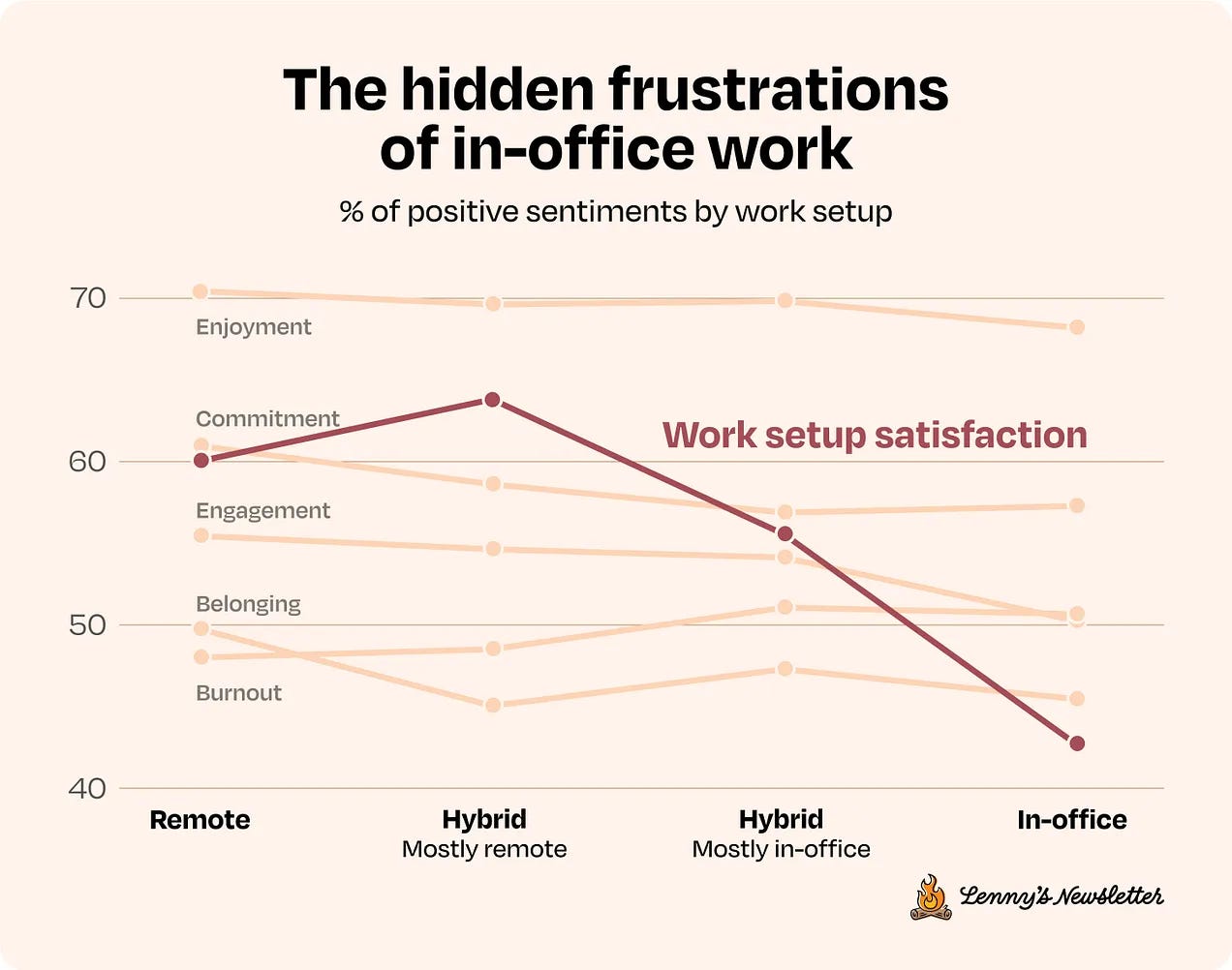Remote Work Is Killing Your Career
The hidden cost of working from home for ambitious 20-somethings.
Hot Take: Young People Need In-Office Work
When I started my career after graduating from Brown, I joined Oracle’s ‘Class Of’ Tech Sales Training Program. It was far from perfect - but overall, it was dope.
We partied together.
We drank beer together.
We did push-ups together.
But now, everyone and their mother is talking about how great remote work is.
After working remotely for the last four years, I’m now back in the office five days a week.
And you know what? I kinda like it. There, I said it.
Jamie Dimon, CEO of JPMorgan Chase, would agree:
“Younger people are being left behind. I’ve known this for a while. We can prove a little bit of it. And that is cumulative. It’s not like the first month you’re working. It’s by the second year - you have fewer people, you're put on fewer assignments, you know less of what’s going on, you have fewer conversations at the water cooler or in the cafeteria.”
Dimon had two key premises:
Young people are being left behind by remote work.
That impact compounds over time.
When young people aren’t in the office, you lose those impromptu water cooler chats.
So if you’re a young person who wants to advance your career: work in-office.
This is coming from a guy who worked fully remotely in tech for the last four years.
The Power Of Office Work
Logan Hittle is the Athletic Director of NIL at Ohio State. He worked his way up from janitorial staff to the business office. In a LinkedIn post, he credits his success—in part—to working in-office.

This principle applies to tech sales, too. Armand Farrokh, co-founder of 30 Minutes to President’s Club, advises new sales professionals to work in person.

The Other Side Of RTO
A survey conducted by Lenny’s Newsletter found that tech workers:
Reported the highest satisfaction in a mostly-remote hybrid setup.
Reported the lowest satisfaction in a fully in-office environment.
Flexibility is the most coveted career perk for employees, according to Forbes.
The ping-pong tables and office gym have now been replaced by flexibility and a home office budget. It’s clear that tech workers value—and want— flexibility in their work setup. And I don’t blame them.
Even Jamie Dimon agrees that remote work can be effective:
“We have 10% of our people working from home full-time. We put virtual call centers in Baltimore and Detroit. We did it to see if they’d be effective. They were highly effective… I’m not against [remote work] where it works.”
Know What You’re Optimizing For
At the end of the day, know what you’re optimizing for:
If you want flexibility and freedom, work remotely.
If you want visibility and career acceleration, work in-office.
Neither is better than the other. They’re just different. Do what’s best for you and your situation.
Thanks for reading.
— Grant Varner


